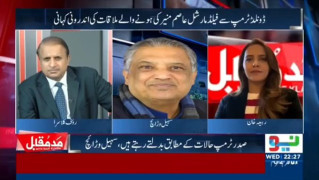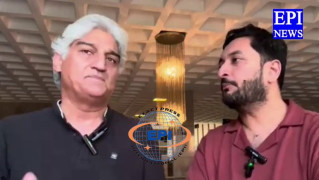Night_Hawk
Siasat.pk - Blogger
A chance to govern Dawn Editorial
Monday, 25 Oct, 2010

In this period of relative quiet, the cooler heads in the government could chalk up a plan to complement the political rhetoric with genuine governance results. File Photo
After a barrage of crises, real and imagined, the country finally appears to be getting a chance to catch its breath. A showdown between parliament and the judiciary over the 18th Amendment has been averted; the judiciary-executive clash has been paused for a few days; the Pakistan Army under Gen Kayani has arrogated to itself the national security and foreign policy domains, but appears willing to give the political government genuine space in other governance matters; and the political opposition led by Nawaz Sharif appears content to fire sharp verbal salvos at the government, but do little in meaningful terms to disrupt the government in Islamabad. Whether by design or by accident, the PPP-led government seems more likely to continue in power for the time being than not. So perhaps now is the time to chart a mid-term change in course for the government, emerging from a defensive, politics-oriented mindset and moving towards a more proactive, policymaking mindset.
There is clearly no shortage of opportunities. The power sector was an early area of focus though only to the extent of rhetoric and band-aid treatment but it remains in serious trouble, with the problem of circular debt literally growing by the day. Elsewhere, Finance Minister Hafeez Sheikh pledged in his budget speech to try and plug the Rs250bn hole that public-sector enterprises make in the federal budget each year, but little has been heard on this front. Pakistan Railways, for example, continues to lurch towards financial collapse, with emergency packages and measures doing little to address the underlying problems. Pakistan International Airlines, meanwhile, continues to be one of the most inefficient airlines in the world, with a wildly disproportionate employee-to-aeroplane ratio. As winter approaches, the country is once again reminded of an acute gas shortage that is set to grow exponentially worse in the years ahead, and yet external or fresh internal supplies are not being pursued with the vigour that the crisis demands. All of these present real opportunities for the government, areas in which genuine progress can be made if policymaking is taken seriously.
In the midst of a political crisis, with passions running high and uncertainty everywhere, rational decision-making is often the first casualty. But in this period of relative quiet, the cooler heads in the government could chalk up a plan to complement the political rhetoric with genuine governance results. Playing the victim or politics card is easy enough; addressing or pre-empting problems requires real effort.
Monday, 25 Oct, 2010

In this period of relative quiet, the cooler heads in the government could chalk up a plan to complement the political rhetoric with genuine governance results. File Photo
After a barrage of crises, real and imagined, the country finally appears to be getting a chance to catch its breath. A showdown between parliament and the judiciary over the 18th Amendment has been averted; the judiciary-executive clash has been paused for a few days; the Pakistan Army under Gen Kayani has arrogated to itself the national security and foreign policy domains, but appears willing to give the political government genuine space in other governance matters; and the political opposition led by Nawaz Sharif appears content to fire sharp verbal salvos at the government, but do little in meaningful terms to disrupt the government in Islamabad. Whether by design or by accident, the PPP-led government seems more likely to continue in power for the time being than not. So perhaps now is the time to chart a mid-term change in course for the government, emerging from a defensive, politics-oriented mindset and moving towards a more proactive, policymaking mindset.
There is clearly no shortage of opportunities. The power sector was an early area of focus though only to the extent of rhetoric and band-aid treatment but it remains in serious trouble, with the problem of circular debt literally growing by the day. Elsewhere, Finance Minister Hafeez Sheikh pledged in his budget speech to try and plug the Rs250bn hole that public-sector enterprises make in the federal budget each year, but little has been heard on this front. Pakistan Railways, for example, continues to lurch towards financial collapse, with emergency packages and measures doing little to address the underlying problems. Pakistan International Airlines, meanwhile, continues to be one of the most inefficient airlines in the world, with a wildly disproportionate employee-to-aeroplane ratio. As winter approaches, the country is once again reminded of an acute gas shortage that is set to grow exponentially worse in the years ahead, and yet external or fresh internal supplies are not being pursued with the vigour that the crisis demands. All of these present real opportunities for the government, areas in which genuine progress can be made if policymaking is taken seriously.
In the midst of a political crisis, with passions running high and uncertainty everywhere, rational decision-making is often the first casualty. But in this period of relative quiet, the cooler heads in the government could chalk up a plan to complement the political rhetoric with genuine governance results. Playing the victim or politics card is easy enough; addressing or pre-empting problems requires real effort.






























